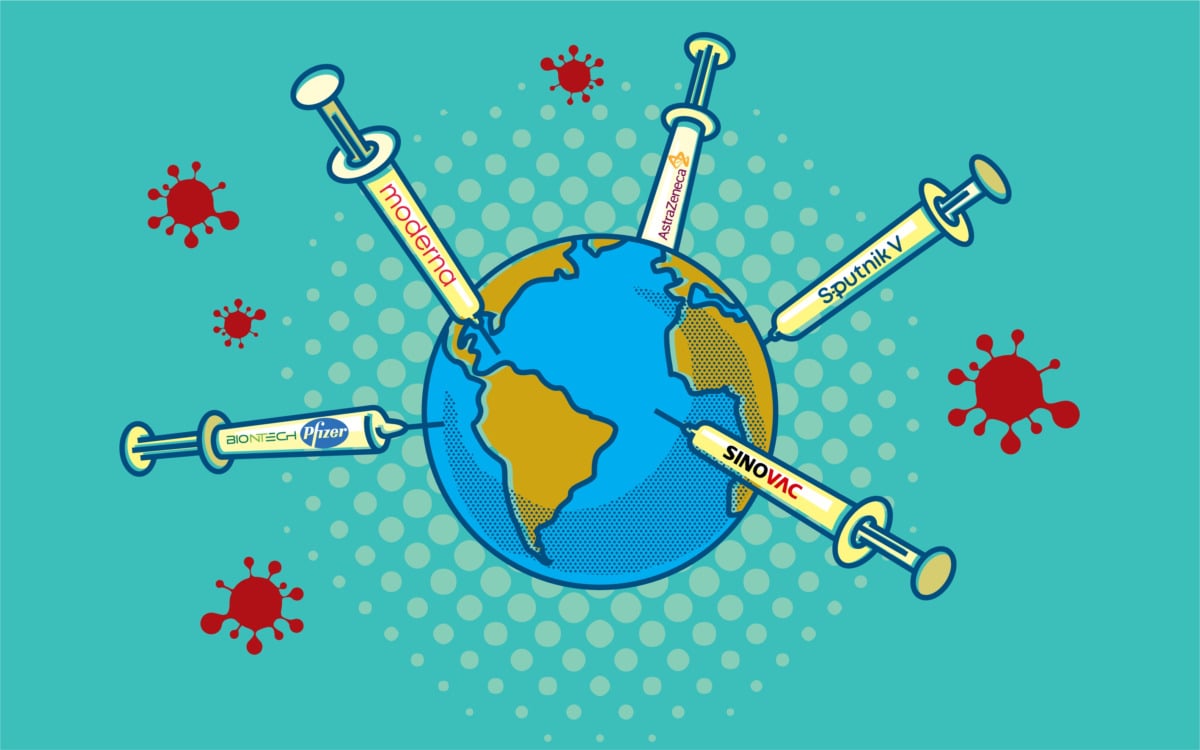Newsletter Signup – Under Article / In Page
“*” indicates required fields
The longevity biotech industry revolves around the goal of increasing the period of life that a person spends in good health. There has been a rapidly expanding effort in recent years to develop drugs that target aging as a root cause of disease, and this type of biotechnology has come to be a very popular focus for many companies, leading to numerous anti-aging biotech startups popping up around the world.
The main technology currently being used when developing anti-aging therapies is epigenetic reprogramming, which involves the identification of four specific transcription factors – known as “Yamanaka factors”, named after Japanese stem cell researcher and Nobel Prize laureate Shinya Yamanaka – that can transform somatic cells into pluripotent stem cells, inducing changes in gene expression and cellular behavior. This effectively reverses or modifies the epigenetic markers associated with aging, rejuvenating cells and tissues, and potentially slowing down or reversing the effects of aging, and even age-related diseases, such as neurodegenerative diseases.
This technology has been tested in animal models, and there is evidence that it works, sparking considerable investment in startups seeking to rejuvenate humans.
Meanwhile, there are also other techniques being developed to reverse signs of aging, such as forcing human induced pluripotent stem cells (iPSCs) to age, in turn triggering their self-rejuvenation mechanism, and using gene therapy to deliver copies of specific gene variants into cells to promote healthy aging.
In this article, we take a look at 13 anti-aging biotech companies on a mission to extend lives and make age-related diseases a thing of the past.
Altos Labs
- Technology: Partial epigenetic reprogramming
- Recent funding: $3 billion
- Recent news: Successfully extended the lifespan of mice
Altos Labs has attracted a lot of attention since it launched in 2022 with an incredible $3 billion in capital, with Amazon founder Jeff Bezos reportedly being one of the key investors. According to the company, its mission is to restore cell health and resilience through cellular rejuvenation programming to reverse disease, injury, and disabilities that can occur throughout a person’s life.
The anti-aging biotech company is based in the U.S. in the San Francisco Bay Area and San Diego, and in the U.K. in Cambridge, while also having significant collaborations in Japan. Activity for the company is organized across the Altos Institutes of Science, which pursues deep scientific questions and integrates their findings into one collaborative research effort, and the Altos Institutes of Medicine, which captures knowledge generated about cell health and programming, and develops transformative medicines.
Altos’ immediate focus was to fund its scientists and researchers in order to properly understand rejuvenation, such as how to tailor reprogramming to see if it can rejuvenate animals without killing them, and whether the process can be carried out using ordinary drugs instead of through genetic engineering.
For a while after its launch, not much was known about the activities of Altos Labs. But, finally, last year, a new paper was published by scientists at the company showing that targeted partial reprogramming of age-associated cell states successfully extended the lifespan of mice. The results of this study could eventually be a major leap toward bringing partial cellular reprogramming to the clinic.
Cambrian Bio
- Technology: Small molecule AMPK/mitochondrial activator; and mTOR inhibitors
- Lead candidate: Amplifier’s ATX-304 for the treatment of cardiometabolic diseases
- Recent funding: $100 million series C
Recently valued at $1.79 billion, Cambrian Bio is considered a biotech unicorn. It exited stealth in 2021 with $60 million in funding, before raising another $100 million in series C financing toward the end of the same year. It has a unique 3-in-1 operational strategy, combining the advantages of a biotech company, a venture capital fund, and an incubator. Since its inception, it has developed a pipeline of companies and therapies that can treat and prevent age-related diseases and lengthen healthspan.
The anti-aging company believes that the future of medicine lies in approaching these diseases proactively, removing damage at a cellular level before a person becomes a patient. Each candidate in Cambrian’s pipeline targets a different type of damage that builds up with age, spanning obesity, respiratory, oncology, and immunology indications.
These candidates are being developed primarily through two of Cambrian’s eight pipeline companies – Tornado Therapeutics, which was launched by Cambrian in 2022, and Amplifier Therapeutics, launched in 2023. Amplifier is currently developing the most advanced candidate listed under Cambrian’s pipeline, called ATX-304. It is a small molecule AMPK/mitochondrial activator for the treatment of cardiometabolic diseases, currently being studied in a phase 1b trial in pre-diabetic, overweight/obese patients in the European Union (EU).
Meanwhile, Tornado is developing TOR-101, a potentially safer and more effective mechanistic target of rapamycin (mTOR) inhibitor intended for the treatment of respiratory tract infections that is moving into Investigational New Drug (IND)-enabling studies.
clock.bio
- Technology: Human induced pluripotent stem cells (iPSCs) aging model
- Recent funding: $5.3 million
- Recent news: Announced that it had decoded the biology of rejuvenation across entire human genome
Based in Cambridge in the U.K., clock.bio is an anti-aging biotech startup developing novel regenerative medicines leveraging the natural ability of human induced pluripotent stem cells (iPSCs) to prevent and treat age-related diseases. The company was founded by Mark Kotter, who is also the founder and chief executive officer (CEO) of bit.bio (a synthetic biology company), and launched out of stealth in 2023 after reaching proof-of-concept with $4 million in funding, with an immediate objective to decode all rejuvenation programs present in human cells in order to build an atlas of disease and rejuvenation targets for clinical translation.
The company has now achieved this, having successfully built what it calls an “Atlas of Rejuvenation”. Running a genome-wide CRISPR screen, with single-cell RNA-sequencing of more than 3 million cells that generated 20 terabytes of data, it has been able to decode the “rejuvenation mechanism” innate in human stem cells, identifying more than 100 genes. The reason for doing this is that understanding the genes associated with rejuvenation will enable the reversal of several aging hallmarks by repurposing existing drugs for increased healthspan. In addition, genetic targets for repair of individual aging hallmarks will be highly relevant for developing novel treatments of age-related disease.
clock.bio has also developed a proprietary aging model that can force stem cells to age, faithfully recreating the known cellular hallmarks of aging. This intervention triggers a self-rejuvenation mechanism, whereby iPSCs repair these hallmarks and turn young and healthy.
In October 2024, at the same time as it announced that it had decoded the biology of rejuvenation across the entire human genome, the anti-aging company also said it had managed to raise another $5.3 million in funding.
Genflow Biosciences
- Technology: Gene therapy
- Lead candidate: GF-1002 for treatment of MASH
- Recent news: Raised €4 million ($4.3 million) in financial support from the Wallonia region of Belgium
U.K.-based Genflow Biosciences is attempting to make use of gene therapy to halt or slow the aging process in both humans and dogs by reducing and delaying the incidence of age-related diseases. It believes that, by treating aging, it can contribute to decreasing healthcare costs and lessening the emotional and societal burden associated with an aging population.
The anti-aging biotech company has a lead compound in the pre-IND phase of preclinical development called GF-1002, which is a suspension of a gene therapy for intravenous infusion. The company’s approach is to use adeno-associated virus vector-based (AAV) vectors to deliver copies of the Sirtuin-6 (SIRT6) gene variant, which is found in centenarians, into cells. Sirtuins are a group of proteins that play a vital role in regulating various cellular processes, with SIRT6 having gained particular attention for its possible role in promoting healthy aging.
Genflow recently raised €4 million ($4.3 million) in financial support from the Wallonia region of Belgium to help fund the development costs of GF-1002 for the treatment of metabolic-associated steatohepatitis (MASH).
Additionally, Genflow’s product pipeline also includes other innovative interventions in gene delivery: GF-3001, which provides topical delivery of SIRT6 to the skin for the treatment of Werner syndrome in humans; and GF-4001, which is intended as a pivotal anti-aging treatment for dogs.
Junevity
- Technology: siRNA therapeutics
- Disease areas: Type 2 diabetes and obesity
- Recent funding: $10 million seed
Anti-aging startup Junevity is focusing on the development of cell reset therapeutics for longevity with the help of its platform technology, RESET, which uses large-scale human data and artificial intelligence (AI) to identify transcription factors that can regulate cell damage. The company then develops silencing RNA (siRNA) therapeutics to knock down the transcription factors regulating these pathways, resetting cell health.
The company already has the preclinical data to back up its platform. In a recent press release, it said that in type 2 diabetes – the company’s initial focus area – its first siRNA therapeutic candidate improved glucose control and insulin sensitivity in diabetic mice without causing weight gain or other side effects associated with insulin sensitizers. Meanwhile, in obesity, its second siRNA candidate improved adipose tissue metabolism and reduced food intake, leading to 30% weight loss compared to controls.
In February 2025, Junevity managed to raise $10 million in seed funding to help it advance its platform and candidates.
Juvenescence
- Technology: Small molecules
- Lead candidate: PAI-1 inhibitor for treatment of fibrosis
- Recent news: Bought UniverXome Bioengineering from Serina Therapeutics
Juvenescence is a company focused on anti-aging research and the development of therapies to combat age-related diseases, with its various collaborations and subsidiaries enabling it to explore diverse approaches, including small molecules, gene therapies, and regenerative medicine.
The company has a broad portfolio of products in development and is driving innovation through two divisions: JuvTherapeutics, which is focused on traditional prescription medicines to modify aging and prevent diseases, and JuvLife, which involves consumer products that manage aging and help increase health span. Some examples of its ventures include the formation of Juvenomics in 2020 with G3 Therapeutics, the launching of Selah Therapeutics alongside the Buck Institute for Research on Aging in 2022, and, more recently, the buying of UniverXome Bioengineering from Serina Therapeutics, which cleared Serina’s debt.
In terms of its pipeline, Juvenescence’s lead candidate is currently in the clinical stages, being tested in a phase 1 trial for the treatment of fibrosis. The candidate is an oral small molecule PAI-1 inhibitor targeting the core driver of fibrosis in multiple organs. The company also has four preclinical candidates in its pipeline for the treatment of muscle wasting, rheumatoid arthritis, heart failure, and Alzheimer’s disease.
Back in 2019, the anti-aging company closed a $100 million funding round, which brought its valuation at the time to a total of $500 million.
Life Biosciences
- Technology: Gene therapy; partial epigenetic reprogramming
- Lead candidate: ER-100 for the treatment of optic neuropathies
- Recent funding: $82 million series C
Life Biosciences cites aging as the biggest risk factor for most chronic diseases, and is therefore targeting aging biology in its development of innovative therapies, pursuing a platform approach in order to develop therapeutics that can ultimately prevent, treat, and/or reverse multiple aging-related conditions.
The company’s partial epigenetic reprogramming platform, which is being used in preclinical studies for ophthalmic indications, reprograms the epigenome of older animals to resemble the epigenome of younger animals via expression of three Yamanaka factors, which play a vital role in the creation of induced pluripotent stem cells, and control how DNA is copied for translation into other proteins.
The company’s lead program is a gene therapy called ER-100, which allows for the expression of three transcription factors known as Oct-4, Sox-2, and Klf-4. This is designed to induce partial epigenetic reprogramming to modify the epigenome of cells. The candidate is being evaluated in two optic neuropathies – non-arteritic anterior ischemic optic neuropathy (NAION) and primary open angle glaucoma (POAG) – with plans to initiate the first human clinical studies in the second half of 2025.
In 2022, Life Biosciences completed a $82 million series C financing round, bringing its total funding to $158 million.
New Limit
- Technology: Epigenetic reprogramming
- Initial funding: Received $110 million from founders
- Recent funding: $40 million series A
New Limit is another anti-aging biotech startup looking to develop epigenetic reprogramming therapies to treat age-related diseases with large unmet needs.
In order to reverse cellular aging in this manner, the company wants to use new epigenetics tools to reprogram cells so that they act younger, with an initial focus on T cells. To achieve this, it uses its Discovery Engine, taking advantage of advancements in single-cell genomics, epigenetic editing, and machine learning, which it says will help it overcome traditional roadblocks to epigenetic reprogramming. The company is also developing models to perform informative experiments in silico, allowing it to interpret single-cell profiles in terms of cellular age and function.
New Limit was co-founded by Coinbase chief executive officer (CEO) Brian Armstrong, and aims to maintain a small team where every member actively contributes to both scientific work and company growth.
In May 2023, the company announced that it had secured $40 million in a series A funding round. The company had also previously received an original $110 million commitment to the company from its founders.
Rejuvenate Bio
- Technology: Gene therapy
- Lead candidate: RJB-0402 for the treatment of cardiomyopathy
- Recent news: Received $4 million in funding
San Diego-based anti-aging biotech company Rejuvenate Bio is developing novel gene therapies for chronic age-related diseases, with a particular focus on cardiac and metabolic diseases. To do this, the company is targeting fibroblast growth factor 21 (FGF21), a hormone secreted by the liver that plays a crucial role in regulating energy homeostasis, glucose and lipid metabolism, and insulin sensitivity.
The company’s lead candidate, RJB-0402, is in development for the treatment of desmoplakin gene variant arrhythmogenic cardiomyopathy (DSP ACM). The candidate is a systemically administered investigational AAV8 gene therapy that drives liver-specific expression of FGF21 protein, targeting multiple key pathological drivers of DSP ACM. It is currently in the IND-enabling phase.
Rejuvenate is also conducting a gene therapy trial for mitral valve disease (MVD) in dogs, in the hope of developing a novel cardio-protective gene therapy to stop the progression of heart failure. The company says that the approval pathway in dogs has an approximately 90% overlap with IND enabling studies in humans. It has partnered with Phibro Animal Health for the development and commercialization of its gene therapy for MVD, providing an early revenue stream to further develop its human clinical programs.
In July 2024, Rejuvenate announced that it had received $4 million in funding from the California Institute of Regenerative Medicine, which the company said would help it advance the development of RJB-0402.
Retro Biosciences
- Technology: Cellular reprogramming, autophagy, and plasma therapeutics
- Recent funding: $180 million
- Recent news: Partnered with OpenAI to engineer stem cell proteins using AI
In an ambitious attempt to add 10 years to the human lifespan, Retro Biosciences is focused on using cellular reprogramming, autophagy, and plasma-inspired therapeutics. It hopes to design therapies that will eventually be capable of multi-disease prevention. The company eased out of stealth mode in mid-2022, having secured $180 million in investment from OpenAI CEO Sam Altman, which allowed it to head toward its first proof-of-concept and secure operation of the company through the decade.
According to a report in January by the Financial Times, it is likely that Retro Bio’s first clinical trial will emerge from its autophagy program and is expected to begin at some point this year. Additionally, it was reported that the company is aiming to raise $1 billion to fuel the next stages of development.
The company also recently struck a deal with OpenAI to engineer stem cell proteins using AI. This is OpenAI’s first biology-focused AI model and shows promising results in redesigning proteins that could improve stem cell production efficiency by up to 50 times.
Rubedo Life Sciences
- Technologies: AI drug discovery platform; Disease-altering GPX4 modulator
- Lead candidate: RLS-1496 for the treatment of inflammatory skin diseases
- Recent news: Raised $40 million in series A round
Rubedo Life Sciences, whose aim is to discover and develop medicines to keep people biologically young, uses an AI drug discovery platform called ALEMBIC to enable it to identify specific druggable targets before developing them into therapeutics that selectively target the pathologic cells that drive the aging process.
The platform allows the company to develop novel small molecules to selectively target pathologic and senescent cells, which play a key role in the progression of pulmonary, dermatological, oncological, neurodegenerative, fibrotic, and other chronic disorders.
The company’s lead candidate, RLS-1496, is a disease-altering GPX4 modulator for the treatment of inflammatory skin diseases and is expected to enter phase 1 trials in Europe this year. The planned study will include patients with skin conditions to test safety in primary endpoints. Meanwhile, secondary endpoints will include cellular senescence and disease-associated biomarkers. The company also has preclinical candidates in its pipeline for respiratory, metabolic, and neurological diseases.
Rubedo raised $40 million in a series A funding round in April last year, which the company said would be used to advance RLS-1496.
Shift Bioscience
- Technology: Cell simulation platform
- Recent funding: Raised $16 million in seed round
- Total funding to date: $18 million
Shift Bioscience is building a cell simulation platform that combines generative AI with a biological aging clock to predict which sets of genes are most likely to safely rejuvenate specific cells, allowing the company to identify promising gene candidates more efficiently. This approach aims to tackle age-related diseases by reprogramming cells without inducing risky pluripotent states.
In October 2024, the anti-aging startup raised $16 million in seed funding to help with the continued development of its AI cell simulation platform. The new investment brought the total raised by the company to date to $18 million.
Shift’s short-term goals are to expand its experiments from human fibroblasts to other human cell types and test its interventions in animal models, so that it can demonstrate the real-world therapeutic potential of its interventions. The company is also focused on mapping the translatability landscape of these age-linked diseases to identify the safest and most promising paths for drug development. Meanwhile, Shift’s CEO Daniel Ives told Labiotech last October that his long-term goal is to demonstrate that the approach can significantly impact multiple mouse models of human age-linked disease, setting the company up for preclinical therapeutic development.
Turn Biotechnologies
- Technology: mRNA technology
- Lead candidate: TRN-001 for skin rejuvenation
- Recent news: Acquired ARMMs delivery technology from Harvard University
Turn Biotechnologies is focused on repairing tissue at the cellular level and developing transformative drug delivery systems. Its proprietary mRNA-based ERA technology restores optimal gene expression by combating the effects of aging in the epigenome, restoring cells’ ability to prevent or treat disease and heal or regenerate tissue. The platform also enables the company to carefully control the time, duration, and dosage of transcription factors to optimize the mRNA cocktail for each indication.
Meanwhile, the company has two non-viral technology platforms that deliver RNA, proteins, and gene-editing complexes to specific tissues and cell types, including those that have been hard to target. The eTurna Platform is a non-traditional, ionizable lipid carrier that overcomes limitations of other lipid platforms by offering stability, high bioavailability, good solubility, and good absorption in the body. Turn Bio’s other platform, ARMMs, which was acquired from Harvard University last month, is based on human extracellular vesicles that transport signaling molecules between cells. These vesicles are engineered to carry therapeutic agents into cells, providing an efficient delivery system for epigenetic tools.
Turn Bio’s lead candidate, TRN-001, which uses the eTurna platform, is meant for skin rejuvenation. It is designed to treat hair and skin conditions that affect hundreds of millions of people around the world, including aesthetic issues, such as wrinkles, skin texture, hair loss, hair color loss, and scars, as well as therapeutic needs, including inflammation, frailty, wounds, and sun damage. According to the company, preclinical results have shown that TRN-001 improves skin integrity, reduces inflammation and cell senescence, and achieves hair follicle transfection.
Last year, the anti-aging company also signed a licensing agreement worth more than $300 million with HanAll Biopharma to develop novel treatments for eye and ear diseases, expanding the relationship between the two companies, which began in 2022 when HanAll made an initial investment in Turn Bio.
The anti-aging biotech market: looking ahead
It seems as though anti-aging biotech startups are all the rage at the minute, with the longevity industry gaining an influx of funding from investors, including aforementioned big names like Amazon founder Jeff Bezos and OpenAI CEO Sam Altman, perhaps hoping to extend their own lives through investing in this sort of research. After all, the idea of millionaires and billionaires wanting to live forever is not an unfamiliar concept – both in science fiction and, now, in reality too.
Despite the growing number of players focused on anti-aging therapies, epigenetic reprogramming is a technique that is still very much being tried and tested, with the science still in its early stages. But with the emergence of so many anti-aging startups now working heavily on research in this area, as well as on other anti-aging technologies, we could likely see a vast array of longevity candidates being tested in clinical trials within the next decade.
In fact, the anti-aging market, which was valued at $1.18 billion in 2023, is poised for substantial growth, expected to reach $2.29 billion by 2032 due to rising consciousness and awareness among consumers about signs of aging like wrinkles on the face, fine lines on the forehead, and dull skin color.
These concerns among consumers certainly make for good news for anti-aging companies, as, if their products do reach the market, they can probably expect a positive uptake.
Partnering 2030: Biopharma Report
Download Inpart’s latest report revealing the priorities of out-licensers worldwide.























No Comments
Leave a comment Cancel